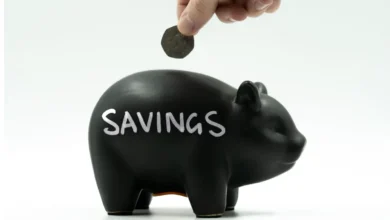Navigating Market Volatility: Tips for Long Term Financial Stability

Investing in the stock markets makes sense for financial stability. Your funds have the opportunity to grow much faster and create a much larger savings pot than if you just put them into a savings account. However, investing in the markets does come with risks, as the value of any investment can go down as well as up.
You may be surprised at how many things can affect the stock market. For example, inflation has caused a rise in retail prices, resulting in decreased sales, and potentially lower profits for businesses. This can cause stock prices to fall. However, if the product or service is essential, the increased price simply means bigger profits for the business and better share prices.
Equally, the Russian invasion of Ukraine caused many companies to lose value, especially those heavily invested in Russia. You need to be aware of how volatile the markets can be and use the following tips to help ensure financial stability.
Diversify for Long Term Financial Stability
This is a fundamental principle of all investments. If you choose one stock and it does well you’re happy. However, choose one and it does badly and you’ve lost all your funds. To help prevent this from happening you need to invest in several different things. That can mean investing in stocks and separately in bonds, or simply investing in shares but targeting unrelated and unconnected companies. If one does badly you’ll still have your other investments.
The greater the range of your investments the more likely it is that any losses will be cancelled out by gains elsewhere. With a little luck, your pot will keep growing in size.
Invest What You Can Afford To Lose

This may seem strange as you don’t want to lose any money. However, it’s a good approach. In the first instance, consider what effect it would have on you, your life, and your nest egg if you lost all the money invested in one option. If the impact would devastate your ability to reach a financial target then you can’t afford to take such a risky investment.
However, if you don’t think it would make a sizeable difference or you have plenty of time to rebuild, then choose the riskier option. The potential gains are worth the investment, but losing the funds won’t be the end of your world.
Know Your Market
Looking after your investments means you need to know the markets you’re invested in. For example, oil has had a lucrative run in recent years with the price steadily increasing. However, its share prices are being threatened by evolving technology. Any industry news story relating to alternative energy, easier and faster to-charge electric batteries, and similar issues are likely to have a negative effect on share prices. By understanding what stories could affect share prices you’ll be in the best position to decide whether to buy, sell, or stay put. Of course, this does mean you need to stay up to date with the news.
Monitor First for Long Term Financial Stability

Monitoring the markets means you’ll risk missing out on a lucrative trade. However, it also means you’ll avoid losing because you invested on a whim. It’s best to study the market, understand it as much as possible, and then watch several trades that you would have made. Once you’re happy that you’re reading the markets correctly you’ll be able to invest. Of course, this approach doesn’t mean you’ll always get it right. But, you will have a better chance of generating returns and maintaining your financial security than if you simply dived into investing.
Seek Professional Help
It can be challenging and very rewarding to navigate the markets and, hopefully, come out on top. However, it can also be time-consuming and, if you get one thing wrong, extremely costly. It’s a good idea to seek professional help. You can choose to let a professional manage all your funds. Or, if you prefer, simply register with a professional to get the best possible advice. This will help you plan your own strategy.
Summing Up
All markets can be volatile and there will be times when you don’t see something coming. That’s why it’s critical for your financial stability to diversify and always proceed with caution. However, with the right approach, patience, and perhaps a little luck, you can build stability and create a sizeable return on any investment. You simply need to remember that saving, investing, and financial stability are long-term goals. Small steps will generally be more successful than large ones. Don’t forget, all trades should be made while you are calm and not emotional. Trading emotionally is likely to cost you money that you don’t want, and perhaps can’t afford, to lose. If needed, walk away from the trade and start afresh the next day, it is the right decision.






